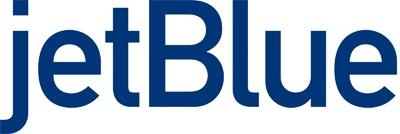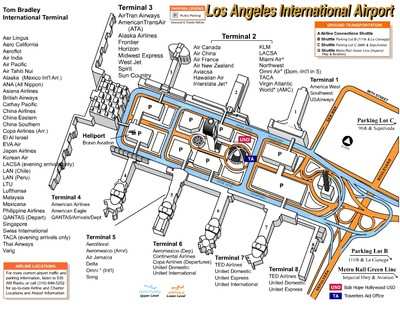California Dreaming
JetBlue, the U.S. low-cost airlines currently at odds with the Biden DOJ over its proposed acquisition of Spirit Airlines, and Shell Aviation, the aerospace subsidiary of the British-Dutch multinational oil and gas company, announced on 14 March 2023 that the two companies would collaborate to bolster the Los Angeles International Airport’s (LAX) supply of Sustainable Aviation Fuel (SAF). JetBlue and Shell Aviation look to commence SAF deliveries to LAX in the first half of 2023.

The agreement between the two entities calls upon JetBlue’s LAX operations to take delivery of ten-thousand-gallons of blended SAF over the next two years and retain an option to purchase as much as five-million additional gallons—at either LAX or other airports in the air-carrier’s network—in the deal’s third year.
SAF, as most pilots and aerospace aficionados know, is a type of ostensibly renewable fuel upon which extant aero-turbine engines are authorized to run provided the SAF is blended at a maximum 1:1 ratio with conventional fossil jet fuel. SAF can be produced from a wide array of renewable sources such as feedstocks, agricultural waste, and used cooking oils. The makers of the stuff allege SAF can lower engine lifecycle greenhouse gas emissions by as much as eighty-percent.
JetBlue CEO Robin Hayes stated: “We’ve long said we need multiple key stakeholders to step up to reach our aggressive emissions reduction goals. This deal with Shell is a key signal of the growing engagement of the major fuel producers to begin converting conventional jet fuel to SAF. Shell’s involvement, with their expertise in energy markets and logistics, is a validation of the SAF market’s potential and highlights how critical the SAF transition of our hard-to-decarbonize industry is to establishing a more sustainable future of flight.”
Shell has made public its ambition to have SAF account for ten-percent of the company’s aviation jet fuel sales by 2030. To meet this goal, Shell is investing in supply chain capabilities to blend, handle, and distribute SAF, thereby affording broadened access to SAF and accelerating the aviation sector’s decarbonization.
Shell Aviation president Jan Toschka remarked: “It’s terrific to be supporting JetBlue once again in its decarbonization efforts. Like Shell, JetBlue understands that SAF will be the key technology to help decarbonize flight. LAX is a critical North American airport hub and we’re delighted to be able to provide JetBlue and corporations on its Sustainable Travel Partners program access to SAF, allowing them to lower their emissions while jointly contributing to investments in SAF.”

JetBlue and Shell contend supporting and growing SAF availability is critical to reaching the larger airline industry’s goal of reaching net-zero carbon emissions by 2040, and JetBlue’s company goal of attaining net-zero operations by 2030. The SAF initiative, in conjunction with additional JetBlue sustainability commitments will apply to the air-carrier’s integration of Spirit Airline’s operations into its own.
JetBlue asserts it will continue to do its part to encourage a diverse and competitive SAF market and foster the build-up of available supply and the economies of scale needed for SAF prices to compete with traditional fuel sources.
JetBlue director sustainability and Environmental, Social, and Governance (ESG) Sara Bogdan added: “We envision a future of a robust, regular, and diversified supply of SAF delivered all around our network, incrementally replacing conventional fuels and driving down emissions in our operation. We’ve publicly committed to cutting our per-seat emissions in half by 2035, and a viable SAF market at scale is a key component to meet this goal. Working with Shell will not only help grow the availability of SAF in the long-term, but also ensure this transition is sustainable from a business perspective, by building the connections and infrastructure to help keep the cost of SAF competitive with traditional fuel.”
JetBlue and Shell will also work to offer corporate customers additional means by which to contemporaneously reduce emissions associated with their air travel while helping ensure transparency and accountability. Through Avelia, one of the world’s first blockchain-powered digital SAF book-and-claim solutions for business travel, businesses and organizations—by purchasing JetBlue-issued SAF certificates—will be able to directly address their corporate travel emissions.
Developed by Shell and Accenture—a Dublin-based, Irish-American professional services company specializing in information technology (IT) services and consulting—with the support of the Energy Web Foundation (EWF), Avelia includes American Express Global Business Travel’s travel-management services to aggregate global business demand for SAF, which will increase SAF supply and help accelerate the aviation industry’s progress towards net zero emissions.

The additional SAF delivered to LAX through Shell Aviation will increase JetBlue’s use of SAF to approximately 15-percent of the airline’s total LAX fuel uptake. In addition to LAX, JetBlue regularly operates SAF-powered flights out of San Francisco (SFO). What’s more, in 2022—seeking to encourage SAF use in its Northeastern U.S. operations—JetBlue signed agreements with three separate SAF producers for future supply.
While JetBlue celebrates its successes with SAF in California and touts its goal of converting ten-percent of its fleet’s total fuel-consumption to SAF by 2030, the carrier fails to make mention of the fact that 1,300-gallons of fresh water are reportedly required to produce a single gallon of SAF from feedstock. What’s more, the vast majority of SAF currently delivered to California airports is mandated by the state’s low-carbon fuel programs. Furthermore, the comparatively exorbitant cost of SAF renders its use unpalatable to airlines—the profit margins of which are razor-thin. In point of fact, SAF’s primary usefulness to air-carriers is one of optics. By appearing to support green agendas, air-carriers placate a small but vocal contingent of environmental extremists.
 Aero-News: Quote of the Day (05.13.25)
Aero-News: Quote of the Day (05.13.25) IAG Orders 76 Boeing, Airbus Airliners
IAG Orders 76 Boeing, Airbus Airliners FAA Shuts Down ATC Oversight Review Amid Scrutiny
FAA Shuts Down ATC Oversight Review Amid Scrutiny Montanas ADS-B Privacy Bill Signed Into Law
Montanas ADS-B Privacy Bill Signed Into Law Newark Falls Victim to More Equipment Outages
Newark Falls Victim to More Equipment Outages





